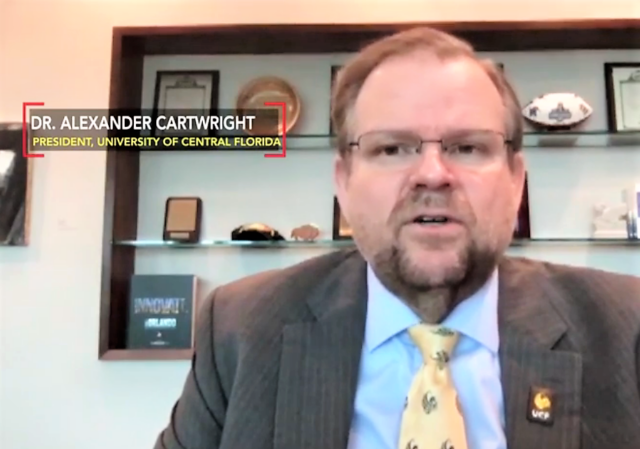excalibur
Diamond Member
- Mar 19, 2015
- 22,750
- 44,310
- 2,290
A huge win for the First Amendment. A much-needed rebuke to the evil wokesters.
...

 legalinsurrection.com
legalinsurrection.com
...
And it just won a big victory against UCF in the 11th Circuit Court of Appeals, with a finding that the lower court improperly denied a preliminary injunction.
From the Opinion:
In this appeal from the denial of a request for a preliminary injunction, we are asked to decide whether two speech-related pol-icies promulgated by the University of Central Florida—one that prohibits multiple forms of expression that are deemed to consti-tute “discriminatory harassment” and another that aims to address so-called “bias-related incidents”—likely violate the First Amend-ment. We must also decide, as a threshold matter, whether the plaintiff—an organization called Speech First, Inc.—has standing to challenge the policies’ constitutionality.
We hold (1) that Speech First has standing to sue because the challenged policies chill its members’ speech and (2) that the discriminatory-harassment policy likely violates the First Amendment on the grounds that it is an overbroad and content- and view-point-based regulation of constitutionally protected expression. Because the district court never considered the bias-related-incidents policy’s constitutionality on the merits—having erroneously concluded that Speech First lacked standing to challenge it—we re-mand for a determination of that issue.
The court described the policy, which is similar to policies on many campuses:
So, in sum: The discriminatory-harassment policy prohibits “verbal, physical, electronic, or other conduct” based on a long list of characteristics including, among others, “religion [or] non-reli-gion,” “genetic information,” and “political affiliation[].” The pol-icy applies to any conduct that, for instance, “unreasonably . . . al-ters” another student’s “participation in a university program or activity.” It specifies that discriminatory harassment “may take many forms”—including, broadly, “verbal acts, name-calling, graphic or written statements . . . or other conduct that may be hu-miliating”—and it utilizes a “totality of known circumstances” ap-proach, based on a non-exhaustive list of factors, to determine whether a speaker’s expression satisfies the “unreasonabl[e] . . . al-ter[ation]” standard. Lastly, the policy prohibits students not only from committing the specified acts, but also from “[c]ondoning,” “encouraging,” or even “failing to intervene” to stop them.
Separate from the discriminatory-harassment policy—but seemingly aimed at addressing similar issues—UCF maintains a policy which seeks to prevent and redress what it calls “bias-related incidents.” ….
So again, to sum up: The bias-related-incidents policy cre-ates a mechanism by which a UCF student can be anonymously accused of an act of “hate or bias”—i.e., an “offensive” act, even if “legal” and “unintentional,” that is directed toward another based on any of a number characteristics that echo (but do not precisely mirror) those listed in the discriminatory-harassment policy. The JKRT “monitor"
...

U. Central Florida 'Discriminatory-Harassment Policy Likely Violates The First Amendment' Rules Federal Appeals Court
'it is an overbroad and content- and view-point-based regulation of constitutionally protected expression'
Last edited: